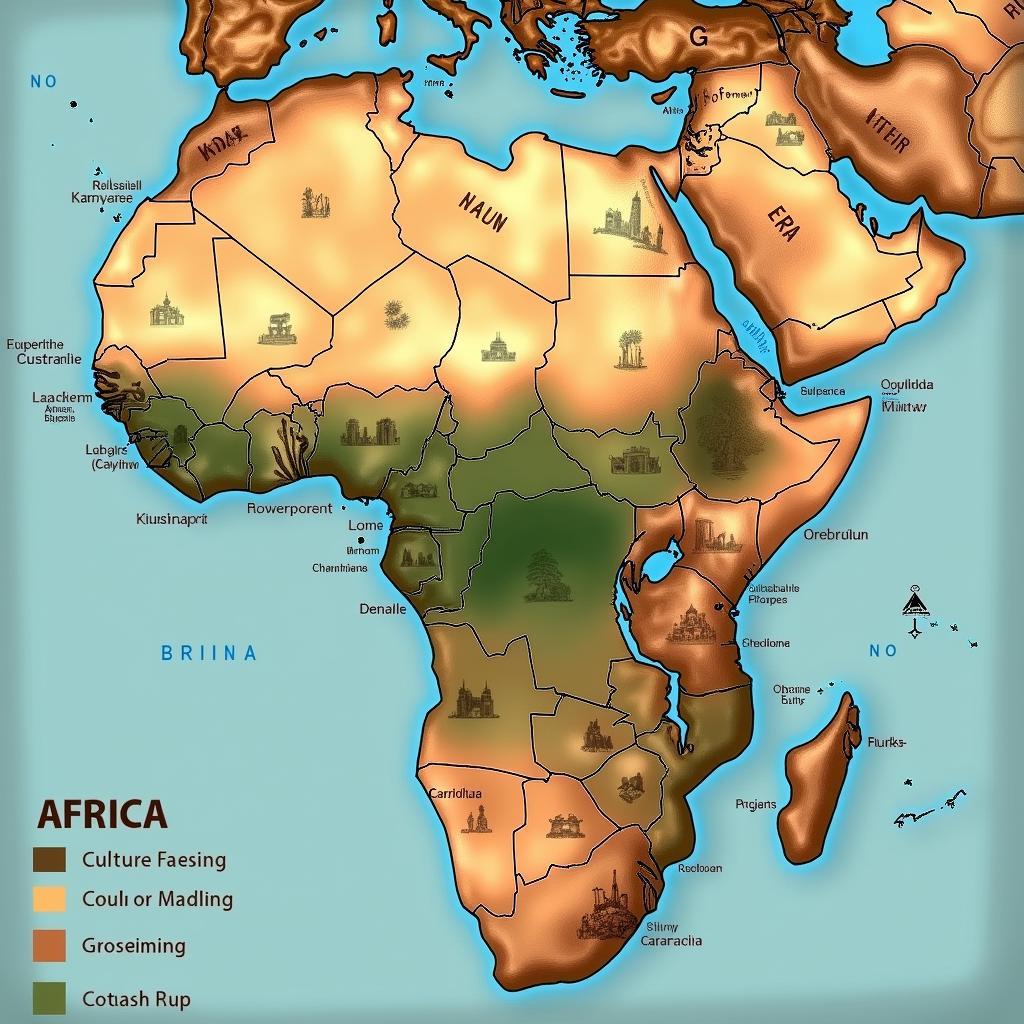African Ethics and Ubuntu: A Foundation for Human Connection
African Ethics And Ubuntu are deeply intertwined, forming a rich tapestry of moral values that emphasize community, respect, and interconnectedness. This exploration delves into the core principles of these ethical systems, highlighting their significance in shaping individual behavior and fostering social harmony within African societies. We will examine the historical context, key concepts, and contemporary applications of these philosophies, providing a comprehensive understanding of their enduring relevance in a globalized world.
Understanding the Core of Ubuntu
Ubuntu, a Nguni Bantu term often translated as “humanity towards others,” encapsulates the essence of African ethics. It emphasizes the importance of recognizing our shared humanity and the inherent dignity of every individual. This philosophy promotes compassion, empathy, and a sense of belonging, fostering a strong sense of community and mutual support. The fundamental belief is that a person becomes a person through other people. This interconnectedness is vital to understanding African ethics. It goes beyond simple kindness; it’s about actively participating in the well-being of others and contributing to the collective good.
After this introductory look at the core of Ubuntu, let’s delve into the practical applications of African ethics. You can find further information on this ethical concept in the article on the African ethical concept of ubuntu.
African Ethics in Practice: Everyday Examples
African ethics, rooted in the principles of ubuntu, manifest in various aspects of daily life. From conflict resolution to community decision-making, these values guide interactions and shape social structures. Respect for elders, a cornerstone of many African cultures, reflects the recognition of wisdom and experience accumulated over time. Similarly, communal land ownership in some societies underscores the importance of shared resources and collective responsibility.
The emphasis on consensus-building in decision-making processes exemplifies the commitment to inclusivity and collective well-being. These practices demonstrate the practical application of African ethics, promoting social cohesion and sustainable living. For more insights into conflict resolution, you can refer to the resource on the African concept of conflict resolution.
The Historical Context of African Ethics
African ethics and ubuntu have deep historical roots, evolving over centuries within diverse cultural contexts. Oral traditions, proverbs, and storytelling have played a crucial role in transmitting these values across generations. These narratives often emphasize the importance of community, respect for nature, and the interconnectedness of all living things.
The historical development of African ethics is intricately linked to the social, political, and economic realities of the continent. Understanding this context is crucial for appreciating the nuances and complexities of these ethical systems. Explore more on this topic by checking out the African ethics PDF available online.
How Does Ubuntu Influence Modern Africa?
Despite the challenges of globalization and modernization, ubuntu continues to exert a significant influence on contemporary African societies. Its principles are reflected in various spheres, from political discourse to social activism. The emphasis on dialogue and reconciliation in addressing conflict remains a powerful legacy of ubuntu.
Moreover, the concept of ubuntu is increasingly being recognized globally as a valuable framework for promoting ethical leadership, social justice, and sustainable development. This growing recognition underscores the enduring relevance of African ethics in a rapidly changing world. For a more in-depth understanding, explore the African Ethics: An Anthology.
African Ethics and Environmentalism
African ethics, deeply rooted in the concept of interconnectedness, has significant implications for environmentalism. The traditional respect for nature and the understanding of the delicate balance between humans and the environment resonate strongly with contemporary environmental concerns. This perspective emphasizes the importance of sustainable practices and responsible stewardship of natural resources. For a deeper exploration of this connection, delve into African environmental philosophy.
Conclusion: The Enduring Power of African Ethics and Ubuntu
African ethics and ubuntu offer a profound and valuable framework for understanding human relationships and building a more just and compassionate world. Their emphasis on interconnectedness, respect, and community provides a powerful antidote to the individualism and fragmentation that often characterize modern societies. By embracing these principles, we can foster greater understanding, cooperation, and harmony both within our communities and across the globe. The enduring power of African ethics and ubuntu lies in their ability to inspire us to live more meaningful and fulfilling lives, connected to one another and to the world around us.
FAQ: Common Questions about African Ethics and Ubuntu
- What is the central idea of ubuntu? Ubuntu emphasizes the interconnectedness of humanity and the belief that a person becomes a person through others.
- How are African ethics applied in daily life? They are reflected in practices like respect for elders, communal decision-making, and conflict resolution through dialogue.
- What is the role of ubuntu in modern Africa? It continues to influence political discourse, social activism, and promotes ethical leadership.
- How does African ethics relate to environmentalism? The traditional respect for nature in African ethics promotes sustainable practices and environmental protection.
- Why is understanding African ethics important? It provides valuable insights into building more just and compassionate societies globally.
- How is Ubuntu different from other ethical philosophies? Ubuntu’s emphasis on interconnectedness and community stands out as a unique contribution to global ethics.
- Where can I learn more about African ethics and Ubuntu? Numerous resources are available online and in libraries, including academic articles, books, and documentaries.
Related Topics and Further Exploration:
- Explore the role of proverbs in transmitting African ethical values.
- Examine the influence of colonialism on traditional African ethical systems.
- Investigate the application of ubuntu in contemporary business practices.
Need further assistance? Contact us at: Phone: +255768904061, Email: [email protected] or visit us at Mbarali DC Mawindi, Kangaga, Tanzania. Our customer service team is available 24/7.


